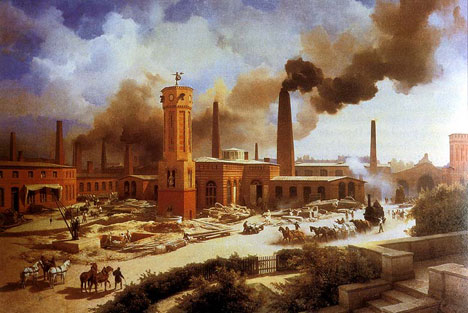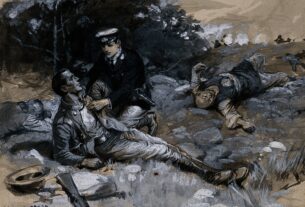Throughout history, pivotal moments have emerged, altering the trajectory of human development and leaving indelible marks on societies, cultures, and the global landscape. These transformative events have ranged from scientific revolutions to conflicts, from cultural movements to technological advancements, each shaping the course of history and influencing the way we live, think, and interact today. Here, we delve into seven of these significant milestones that have defined epochs, sparked revolutions, and set the stage for the modern world as we know it.
1. The Industrial Revolution (Late 18th to Early 19th Century)
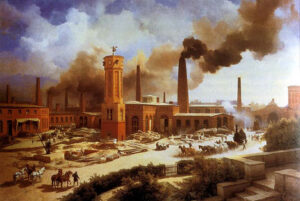
(flickr.com)
The Industrial Revolution, beginning in Britain in the late 18th century, transformed economies from agrarian to industrial. Key innovations included James Watt’s steam engine, mechanized textile production, and advancements in iron and steel manufacturing. These developments led to increased production and efficiency, significantly reducing the cost of goods and making them more accessible.
Economic growth and urbanization surged as factories became production centers and cities expanded rapidly. This era saw the rise of a capitalist economy, with new financial systems, including banks and the stock market, facilitating further industrial growth. The Industrial Revolution also brought profound social changes, notably in labor practices. Factory work introduced regimented schedules, often with harsh conditions, leading to the rise of a distinct working class and the exploitation of child labor. These issues eventually spurred social reform movements advocating for better working conditions and labor rights.
Urbanization brought significant challenges, including overcrowding, poor sanitation, and pollution. The environmental impact of coal use led to severe air and water pollution. The Industrial Revolution’s legacy is evident in modern industrialized societies, highlighting the transformative power of innovation and the need for addressing associated social and environmental challenges.
2. World War I (1914-1918)

(commons.wikipedia)
3. World War II (1939-1945)

(flickr.com)
World War II, spanning from 1939 to 1945, stands as a defining moment in modern history, characterized by its unprecedented scale, global reach, and profound consequences. Emerging from the aftermath of World War I, simmering tensions, economic hardships, and the rise of totalitarian regimes fueled the conflict. It drew in over 100 million combatants and civilians from more than 30 countries across Europe, Asia, Africa, and the Americas, making it the deadliest and most expansive war in human history.
Geopolitically, World War II reshaped the world order. It marked the ascendancy of the United States and the Soviet Union as superpowers, whose rivalry and ideological differences would define the ensuing Cold War era. The war’s end in 1945 with the establishment of the United Nations aimed to promote international cooperation and prevent future conflicts, yet it also cemented divisions between Eastern and Western blocs, setting the stage for decades of global tension.
The aftermath of World War II witnessed profound socio-economic changes. Decolonization accelerated as European empires, weakened by war, began to grant independence to their colonies in Asia and Africa, altering global power dynamics. Culturally, the war left enduring scars, notably through the Holocaust’s atrocities and the resilience of those who fought against fascism. Technologically, the war spurred innovations in areas such as aviation, medicine, and communications, laying the groundwork for post-war advancements that would shape the modern world.
In summary, World War II’s legacy underscores the importance of international cooperation, diplomacy, and human rights in preventing global conflict. Its impact on geopolitical alignments, decolonization, and technological progress continues to resonate in contemporary discussions about global stability and security.
4. The Discovery of Penicillin (1928)

(flickr.com)
In 1928, Scottish scientist Alexander Fleming made a groundbreaking discovery that would transform the landscape of medicine forever. While conducting research at St. Mary’s Hospital in London, Fleming noticed that a mold called Penicillium notatum had inadvertently contaminated a culture plate of Staphylococcus bacteria, effectively inhibiting their growth. This accidental observation led to the discovery of penicillin, the world’s first true antibiotic.
Penicillin’s introduction revolutionized medical treatment by providing a reliable and potent weapon against bacterial infections. Prior to its discovery, diseases like pneumonia, bacterial meningitis, and streptococcal infections were often fatal due to the lack of effective treatments. The advent of penicillin allowed doctors to effectively combat bacterial infections, reducing mortality rates and improving patient outcomes dramatically.
The widespread availability and use of antibiotics, beginning with penicillin, ushered in an era of modern medicine where infectious diseases could be treated effectively. This development not only saved countless lives but also contributed to significant improvements in public health and increased life expectancy worldwide. Today, antibiotics remain essential in the fight against bacterial infections, although their overuse and misuse have led to challenges such as antibiotic resistance, underscoring the ongoing importance of responsible antibiotic stewardship and continued research into new treatments.
5. The Moon Landing (1969)
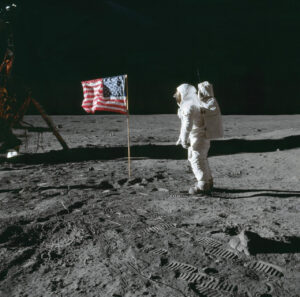
(flickr.com)
6. The Abolition of Slavery (19th Century)

(picryl.com)
7. The Rise of the Internet (Late 20th Century)
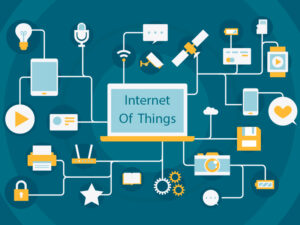
The rise of the internet in the late 20th century was a transformative phenomenon that reshaped nearly every aspect of human life. Beginning as a network primarily used by researchers and academics, the internet expanded rapidly with the advent of the World Wide Web in the early 1990s. This development enabled easy access to information and communication across the globe, marking a paradigm shift in how people interacted and conducted business.
The internet democratized knowledge by making vast amounts of information readily available to anyone with a connection. It revolutionized communication, allowing for instant messaging, email, and later social media platforms that connected individuals regardless of geographical distances. Businesses capitalized on the internet’s reach, spawning e-commerce giants and new digital economies.
Globalization accelerated as barriers to international communication and trade diminished, enabling cross-border collaborations and cultural exchange on an unprecedented scale. The digital age not only facilitated economic growth but also sparked debates about privacy, cybersecurity, and the ethical implications of technology.
Today, the internet continues to evolve, influencing politics, culture, and daily life worldwide. From the proliferation of online education to the rise of virtual communities and the internet of things (IoT), its impact remains profound and multifaceted, shaping the trajectory of societies into the 21st century and beyond.
